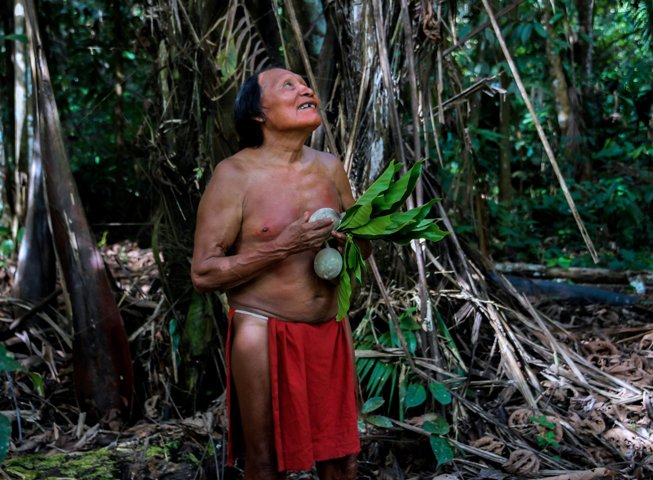Indigenous Peoples must be consulted over use of their lands in Ecuador: Türk
On 23 July, the mayor of the coastal city of Manta was killed, while in the last few weeks, other public figures, political candidates, and journalists have been attacked or received death threats.

UN High Commissioner for Human Rights Volker Türk on Thursday expressed deep concern at the recent spike in violence, fuelled in part by gangs vying for control of the narcotics trade, raging gang violence inside and outside the prison system, and a worrying backward step on the protection of the rights of Indigenous Peoples.
On 23 July, the mayor of the coastal city of Manta was killed, while in the last few weeks, other public figures, political candidates, and journalists have been attacked or received death threats. In response, the Government decreed a state of emergency and curfews in the provinces of Durán, Manabí and Los Ríos.
The situation in the penitentiary system has continued to deteriorate. According to the Office of the Attorney-General, 31 inmates have been killed and 12 injured since 22 July in confrontations between rival gangs at the Guayas 1 prison in Guayaquil. On 26 July authorities confirmed that the 137 prison officers held hostage in seven prisons had all been freed. Two days previously, the Government had imposed a 60-day state of emergency across the penitentiary system, under which the armed forces exercise security functions inside prisons. Following this, government buildings, gas stations, as well as public transport and private vehicles, were attacked in the cities of Esmeraldas and Guayaquil, reportedly by gang members.
Meanwhile, in recent weeks, there have been several confrontations between Indigenous and peasant communities on the one hand and mining companies and public authorities on the other. These incidents followed the issuance of Executive Decree 754 on 31 May, which allows companies to begin mining operations without free, prior and informed consultation with indigenous communities. The police and military have reportedly used force against the communities. The most recent incidents occurred on 24 July in Sigchos, Cotopaxi Province, where at least five people were reportedly injured, and on 14 July in Las Naves, Bolivar Province, where at least 13 people were reportedly injured and two arrested.
The High Commissioner acknowledged the challenges faced by the Ecuadorean authorities and society at large in dealing with violence, noting that the Office of the Attorney-General has opened several investigations.
Türk stressed that states of emergency must respect the principles of legality, necessity, proportionality, and non-discrimination.
“Authorities need to protect people’s lives, including those who are under the State’s custody. Emergency measures – including the use of armed forces in public security tasks – can be implemented but they must be time-bound, exceptional and in full compliance with international human rights law,” he said.
The High Commissioner called for a comprehensive reform of the criminal justice system, including prisons, and encouraged the Government to implement the social rehabilitation policy for prisoners launched in 2022 and developed with technical support from the UN Human Rights Office.
Türk stressed that under international human rights standards, Indigenous Peoples must be consulted over the use of their lands.
“People directly affected by mining projects or activities must be heard, not repressed," the High Commissioner said. “Only human rights-based measures that address the root causes of violence will enable public security and social cohesion.”
- READ MORE ON:
- Ecuador
- Indigenous Peoples
- Volker Türk










